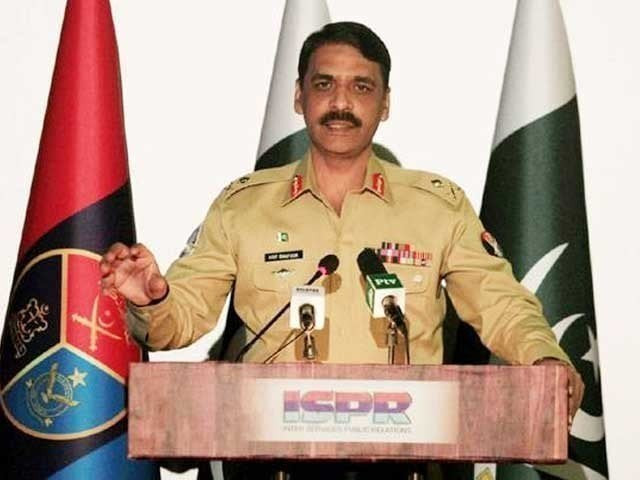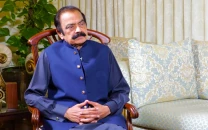After ISI, ISPR becomes new obsession for Indians
Indian cyber-intelligence specialist equates DG ISPR with Russian commander Valery Gerasimov

DG ISPR Maj-Gen Asif Ghafoor. PHOTO: FILE
Although Pakistan won a victory in the 27 February air battle with India, their former military commanders and intelligence specialists are also admitting that Pakistan won the war in the information domain.
Days after a retired Indian general praised Pakistan Army’s media wing for employing “outstanding strategy” in the domain of hybrid warfare, a prominent cyber-intelligence specialist has now warned the India government of the threat the ISPR poses.
“If there is a Pakistani inter-services directorate as lethal as the Inter-Services Intelligence (ISI), it is, undoubtedly, the Inter-Services Public Relations (ISPR),” Pukhraj Singh wrote in his latest article for The Print.
India's ex-general hails ISPR for ‘outclass information war’
In his opinion, the government of Prime Minister Narendra Modi was too late in spotting the danger after Facebook took down pages mending the public opinion ahead of the Indian general elections.
Just like Lt-Gen (retd) Syed Ata Hussain acknowledged the superiority of Pakistani military’s media wing over its Indian counterpart, Singh also hailed the ISPR’s information warfare strategies, especially in the showdown after Pulwama incident.
Last week, Lt-Gen (retd) Hussain had remarked during a speech that the ISPR outclassed the Indian army in information war. “I want to give full marks to the ISPR for the information strategy it has played out,” he was quoted as saying during his address at the International Institute of Strategic Studies in the UK on Thursday.
According to Singh, Pakistani Army has conducted a series of wargames -- Azm-e-Nau, meant to counter India’s ‘Cold Start’ doctrine. “With many successful iterations over the years, these exercises simulated massive mobilisations augmented by net-centric warfare, stopping short at the tactical nuclear weapons threshold,” he wrote.
“Interestingly, the said wargames treated the ISPR as the crucial pivot of conflict escalation and de-escalation. It was meant to undertake information operations, military deception and strategic communications – benignly dubbed as perception management in military parlance.
By F-16s or JF-17s, India can't deny downing of jets: ISPR
“This was a couple of years prior to ‘hybrid war’ becoming all the rage in the media circles, manifesting itself as the wildly successful Russian playbook against Georgia, Ukraine, and the US elections. From leveraging non-uniformed militias to undertaking disruptive cyber operations that seeded widescale paranoia and confusion, the Russians reintroduced the cognitive dimension to this emerging format of war.”
Valery Gerasimov, the chief of the general staff of the armed forces of Russia, is thought to be the key proponent of its hybrid war philosophy, first delivered as part of his address to the Academy of Military Sciences in March 2018. The contents of his lecture gained such prominence that the Western media now prefers to call it the ‘Gerasimov Doctrine’.
“With his carefully orchestrated social media spectacles during and after the Balakot escalation, Major General Asif Ghafoor, the incumbent director general of the ISPR, proved to be a formidable disruptor as well,” Singh maintained.



















COMMENTS
Comments are moderated and generally will be posted if they are on-topic and not abusive.
For more information, please see our Comments FAQ